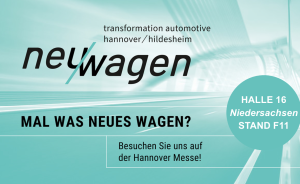 © peterschreiber.media - stock.adobe.com
© peterschreiber.media - stock.adobe.comHannover Region launches hydrogen strategy
 © peterschreiber.media - stock.adobe.com
© peterschreiber.media - stock.adobe.com The Hannover Region wants to become a pioneer in the use of hydrogen and make this an important part of its climate protection strategy.
"Hydrogen is fundamental to the energy, transport and resource transition," says Ulf-Birger Franz, Head of the Hannover Region's Economic and Transport Department. "It can be produced and used without emitting carbon dioxide. This makes hydrogen an energy source of the future. As the Hannover Region, we want to seize this opportunity at an early stage and drive development forward together with many regional partners from science and industry."
Today, Thursday, June 3, the administration, together with Leibniz University, Hannover University of Applied Sciences and Arts and the economic development company hannoverimpuls, will present the first key points for a hydrogen roadmap to the Committee for Labor, Economics and Employment. "Hydrogen will only become established if we leave the phase of small individual projects behind and think in completely different dimensions. We need a comprehensive strategy with training, hydrogen production and economically viable applications," says Franz. "We want to significantly expand the infrastructure for hydrogen in the coming years." The regional assembly has initially allocated 1.5 million euros for project development and 5 million euros for investment by 2024.
The first pilot project could start this year: Hanover's municipal sewage system needs oxygen for more efficient wastewater treatment and could obtain this from an electrolysis plant. Hydrogen is produced as a by-product, so to speak, and could be used in future - for example by regiobus. The electrolysis waste heat is to be fed into enercity's district heating network.
The stakeholders are convinced that hydrogen is an element that will enable us to move away from fossil fuels. ÜSTRA and regiobus have already carried out tests with a hydrogen bus in 2020. The planned regiobus depot in Ronnenberg-Weetzen is to be equipped with a hydrogen filling station. aha also plans to take to the roads with a hydrogen-powered vehicle from 2022.
Training will also be a key element of the hydrogen strategy. "We need well-trained specialists so that the topic and the companies involved can grow. To achieve this, we need to create new training opportunities at universities and vocational schools." In the coming years, a new "Hydrogen Campus Hannover" is to be established with various institutes at Leibniz University. An initial pilot project there will be the development of a hydrogen-powered multicopter. Together with the Chamber of Skilled Crafts, dual vocational training courses are to be created for the skilled trades.
The potential to address the topic of hydrogen for the Hannover Region is there. This is already apparent from the current status of the study by Leibniz University and Hanover University of Applied Sciences and Arts. The University Institute for Electrical Energy Systems, the Institute for Construction Elements, Mechatronics and Electromobility at the university and the Institute for Process Engineering, Energy Technology and Climate Protection at the university have been examining the opportunities for the Hannover Region as a business location since March.
Professor Richard Hanke-Rauschenbach, Leibniz Universität Hannover: "If implemented correctly, hydrogen not only offers potential for climate protection, but also interesting opportunities for the economy. Our main focus here is on the energy sector and the coupling of different industrial sectors in the use of hydrogen, oxygen and heat."
Professor Lars-Oliver Gusig from Hanover University of Applied Sciences and Arts adds: "Two institutes in our Energy, Mobility and Industrial Processes research cluster are dedicated to analyzing the demand for hydrogen in mobility and industry. Hydrogen has advantages over battery drives, especially for municipal commercial vehicle fleets and special vehicles."
The development and use of hydrogen technology is still expensive, but the EU's Clean Vehicle Directive requires public authorities to convert their fleets to up to one third zero-emission vehicles by 2030. For Franz, this is also an opportunity: "The public sector must be a driver of innovation," the Head of Economic Affairs is convinced. "This is not only a contribution to climate protection, but also to the modernization of our economy and the creation of new jobs."
Press contact
Frauke Bittner,
Press spokeswoman - Tel. 0511 616- 22958 - Mobile 0174 195 18 07
E-mail frauke.bittner@region-hannover.de

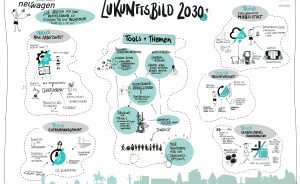 © peterschreiber.media - stock.adobe.com
© peterschreiber.media - stock.adobe.com © peterschreiber.media - stock.adobe.com
© peterschreiber.media - stock.adobe.com © peterschreiber.media - stock.adobe.com
© peterschreiber.media - stock.adobe.com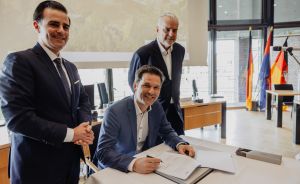 © peterschreiber.media - stock.adobe.com
© peterschreiber.media - stock.adobe.com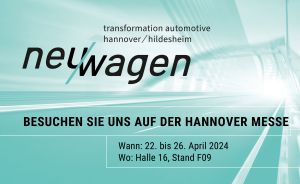 © peterschreiber.media - stock.adobe.com
© peterschreiber.media - stock.adobe.com © peterschreiber.media - stock.adobe.com
© peterschreiber.media - stock.adobe.com © peterschreiber.media - stock.adobe.com
© peterschreiber.media - stock.adobe.com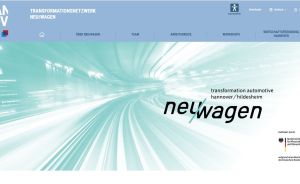 © peterschreiber.media - stock.adobe.com
© peterschreiber.media - stock.adobe.com © peterschreiber.media - stock.adobe.com
© peterschreiber.media - stock.adobe.com © peterschreiber.media - stock.adobe.com
© peterschreiber.media - stock.adobe.com © peterschreiber.media - stock.adobe.com
© peterschreiber.media - stock.adobe.com © peterschreiber.media - stock.adobe.com
© peterschreiber.media - stock.adobe.com